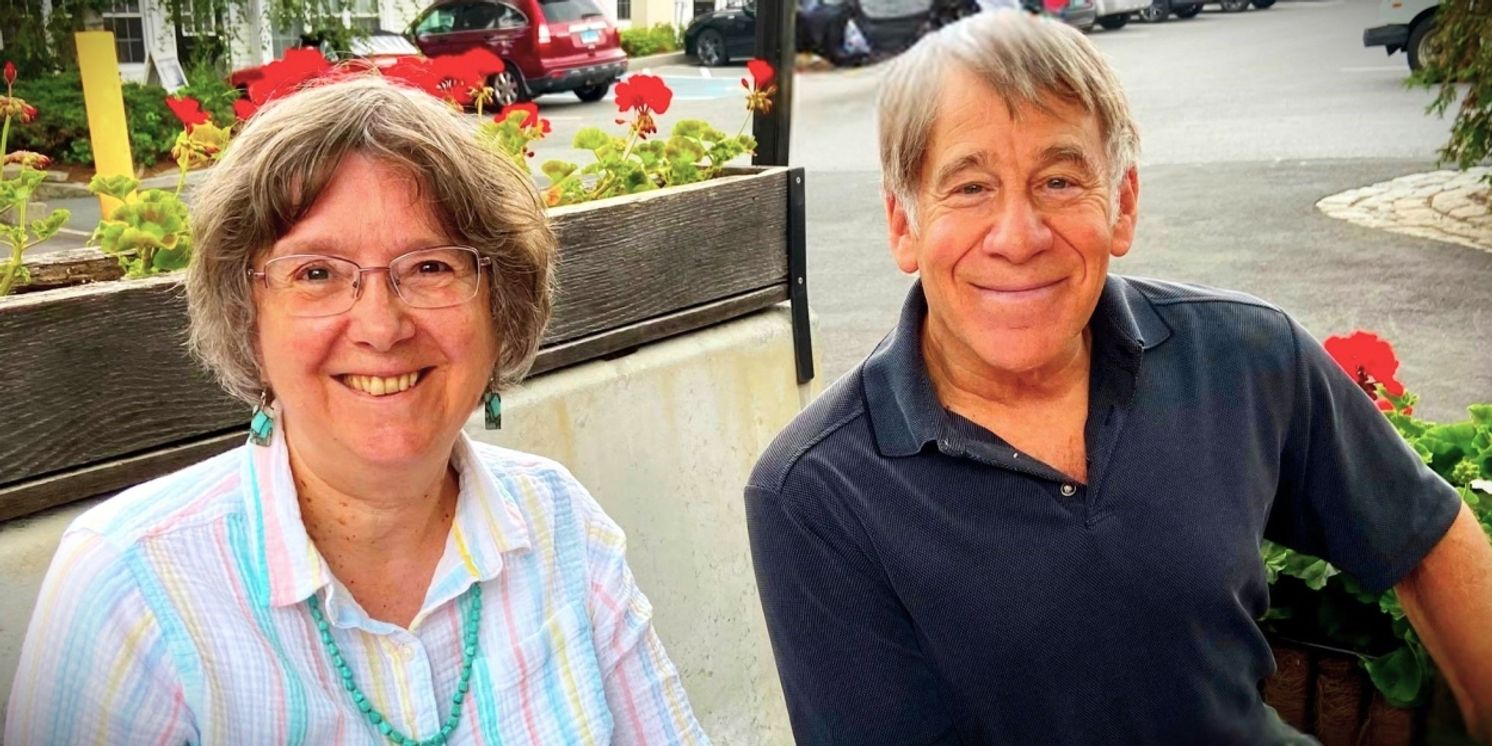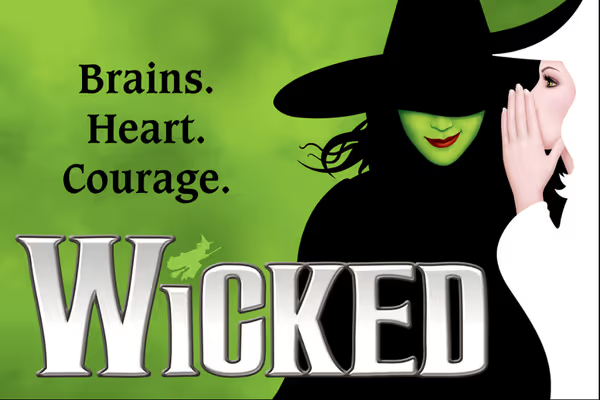Interview: A WICKED CONNECTION: Carol de Giere on Documenting the Legacy of Stephen Schwartz
Wicked will play San Francisco's Orpheum Theater from August 28 thru October 13.

With the national Wicked tour scheduled to play at San Francisco's Orpheum Theater from August 28 thru October 13, it seemed like a good time to speak to Carol de Giere. She is the longtime biographer of Stephen Schwartz and has spent years uncovering the stories behind some of his beloved musicals, including Godspell, Pippin, and Wicked. With his latest show, The Queen of Versailles, making its Broadway debut in the 2025–2026 season, Schwartz continues to captivate audiences.
I first met Carol de Giere in 2017 when she came out to the San Francisco Bay Area for a world premiere of Schwartz’s stage adaptation of The Prince of Egypt. She is the author of Defying Gravity: The Creative Career of Stephen Schwartz, from Godspell to Wicked (2008), The Godspell Experience: Inside a Transformative Musical (2014), and the revised and updated edition of Defying Gravity (2018). Her work offers a unique lens through which we can explore the musicals and creative genius of this legendary composer and lyricist.
Linda: Hi, Carol. Welcome to BroadwayWorld San Francisco! I know that you recently masterminded a “Fan/friends trip to the pre-Broadway tryout of Stephen Schwartz’s The Queen of Versailles in Boston. How do you think The Queen of Versailles fits into Schwartz’s body of work?
Carol: The Queen of Versailles provides much food for thought and post-show discussion, so we were glad to see it and talk about it. The musical reminds me of the Wicked song “Thank Goodness” because of the layers and nuances that audiences can appreciate while a glitzy life unfolds on the surface. The new show explores how getting our dreams is “a little, well, complicated” as Glinda sings in Wicked. Kristin Chenoweth (Wicked’s first Glinda) is perfect in the role of the central character, Jackie Siegel.
The Queen of Versailles is also a bit like Pippin if the character Pippin made different choices at the end—that’s something Stephen has said. I don’t want to share more and spoil it, except to say it is funny in places and poignant. Credit also goes to the book writer Lindsey Ferrentino and director Michael Arden.
Linda: You mention the amazing Kristin Chenoweth. I understand you were in San Francisco for the initial pre-Broadway run of Wicked at the Curran Theatre in 2003. How did that experience influence your perspective on the musical’s development and eventual success?
Carol: That experience was one of my favorites of my 24 years in Stephen’s world. I attended one of the long first previews, as well as opening night. Among other things, we watched a funeral scene for Dr. Dillamond that was cut afterward. I interviewed Stephen there to capture some of the heat-of-the-moment experiences. There’s a couple of chapters in the book about collaboration debates during the pre-Broadway summer.
I told Stephen that I was worried about what audiences were saying in online discussion boards, but that wasn’t his concern. He and Winnie Holzman wouldn’t be rewriting the show to cater to comments, but rather to try to make sure the storytelling worked and their vision for the musical came through. Yes, they listened to where audiences laughed or applauded, but rewrites weren’t for changing things based on other people’s judgments, such as doubts about how different it was from Gregory Maguire’s book. That was a good lesson for me to follow in my own writing efforts.
Linda: For anyone who hasn’t read Defying Gravity, I highly recommend it as the definitive guide to all things Stephen Schwartz. In the revised and updated edition of the book, you added four new chapters exploring the world-wide phenomenon of Wicked and Stephen Schwartz’s ongoing work. What prompted you to include these new chapters, and what new insights or developments did you find particularly noteworthy?
Carol: In the first edition I had already included 14 chapters chronicling Wicked’s development from idea to the Broadway stage. For the 2nd edition, I added Stephen’s comments about script revisions since 2003 and lyrics translation challenges for productions around the world.
The book now begins with a Foreword by composer Alan Menken who describes collaboration experiences with Stephen. In addition to their Disney movie work, they also co-created the stage adaptation of The Hunchback of Notre Dame, and since that musical is now licensed around the country, I thought audiences would enjoy development stories. Plus, there are stories for The Prince of Egypt and other updates since 2008.
Linda:How excited are you about the upcoming film version of Wicked on November 22nd of this year?
Carol: I’m sure I’ll see it many times. Stephen and Winnie started talking about the movie years ago as they toured around the world seeing various stage productions of Wicked. And Winnie worked on the script long before Jon M. Chu came onboard. I love Jon’s work on In the Heights and Crazy Rich Asians (and I was captivated by his new memoir Viewfinder.) He seems to have had the ideal vision for Wicked so I’m sure it will be enchanting. I especially look forward to Part II in 2025 that includes a few new songs.
Linda: The future looks bright for Wicked and of course for all of the show’s millions of fans! And now, let’s go back to the beginning. How did you first meet Stephen Schwartz? What initially drew you to write about him, and how did you first approach him about the idea of a biography?
Carol: In December 1999, I was working as a freelance writer while looking for a book-length project that had a chance of finding an audience. I discovered StephenSchwartz.com while researching for another project and quickly felt, this was it. Stephen was 52 years old at the time but because he started his career in his twenties with three hit musicals (Godspell, Pippin, and The Magic Show) he was well known. Plus, he had several Oscars and Grammys by then. I emailed him to ask if I could write a book about his work. In January 2000 he wrote back, “No one to date has asked.” We started interviews in June before the stage musical version of Wicked had even been announced. It took me eight years of periodic interviews with him and colleagues, writing, and rewriting to get the right tone and content. Fortunately, people seem to like the book.
I should underscore that my writing on Stephen’s journey has been about the making of his musicals and not his life per se. That was by design, because I was mainly interested in the creative process. I did interview his mother and college friends to include some backstory for perspective, but the books are mostly about how this composer-lyricist and his colleagues created original musicals.
Linda:Going behind the curtain of the creative process with a genius like Stephen Schwartz seems like the perfect approach. What are some challenges you faced as a writer while writing Schwartz’s career biography, and how did you overcome them?
Carol: Although I had a writing degree, I didn’t really know how musicals came together so finding my way into the material meant a steep learning curve. My husband Terry and I moved from the Midwest to the New York City metropolitan area so I could see Broadway shows, do interviews, hear talk backs, attend ASCAP musical theatre workshops that Stephen directed, and get accustomed to the world.
I created a timeline for what happened when, so I could tell a chronological story based on interview comments that didn’t come neatly in order. Every time I interviewed one of Stephen’s colleagues, they remembered things that I could then take back to Stephen for his version of the story. It was a huge puzzle to work through. The extra effort for me as someone with less experience in the field may have helped make the book more accessible.
The biggest challenge is the same that most creative people face—finding ways to finance and earn a living from one’s efforts. The passion projects often end up being a side gig, as they were in my case.
Linda: In your own way, you were defying gravity, Carol! Can you share any memorable anecdotes or insights from your interviews with Stephen Schwartz that didn’t make it into the biography?
Carol: Stephen is a complex artist with a range of qualities, including generally being down to earth. It can be daunting to interview someone at his level who is constantly busy with major projects, so it helps that he can be light-hearted some of the time. He is often self-deprecating or uses hyperbole, like he’ll say he wrote millions of songs for The Baker’s Wife, or he’ll make fun of some of his terrible song drafts.
Some anecdotes made it into the book, such as Alan Menken’s story about Wicked’s opening and a green cake. Stephen’s son Scott Schwartz shared a revealing story that I included in Defying Gravity when we were discussing the idea of creativity and risk. Scott said, “On family vacations he’d always be very clear about what he wanted to do, and very organized. I do think he’s adventurous. I don’t know if that’s a risk taker so much as someone who is always excited to try and learn new things.”
Linda: How has Stephen Schwartz changed over the years you’ve been working on these books?
Carol: He’s still so much as Scott described: organized, clear, and wanting to try new things. But we are both in our 70s now and ambitions shift. His colleague John Caird worked with Stephen on Children of Eden originally and much later on the Jr. version. I met John over lunch in 2016 and he expressed something that really rang true, so I included it in the 2nd edition: “I think he’s become much more rigorous with himself about what he should and shouldn’t be doing with his time. I think he’s become happier in himself. He’s more centered and more clear about how he wants to spend his time and who he wants to spend it with.”
Linda: Carol, I noted in the opening paragraph that your newsletter The Schwartz Scene ended after a long 24-year run. What has been the most rewarding part of connecting with Schwartz’s fans through your newsletter?
Carol: I’ve enjoyed hearing from Schwartz fans and meeting many of them over the years. But Stephen is now working on multimillion-dollar projects that have their own press teams and rules. It’s harder to do anything independently. And because 24 years is enough, I’m ready to end my volunteer indie effort on The Schwartz Scene. I’m happy to hear from people who want to write to me via https://caroldegiere.com/
Linda: Thank you so much for giving us a behind-the-curtain look, not only into Stephen Schwartz’s world but also into your own story and journey down the yellow brick road as his biographer.



